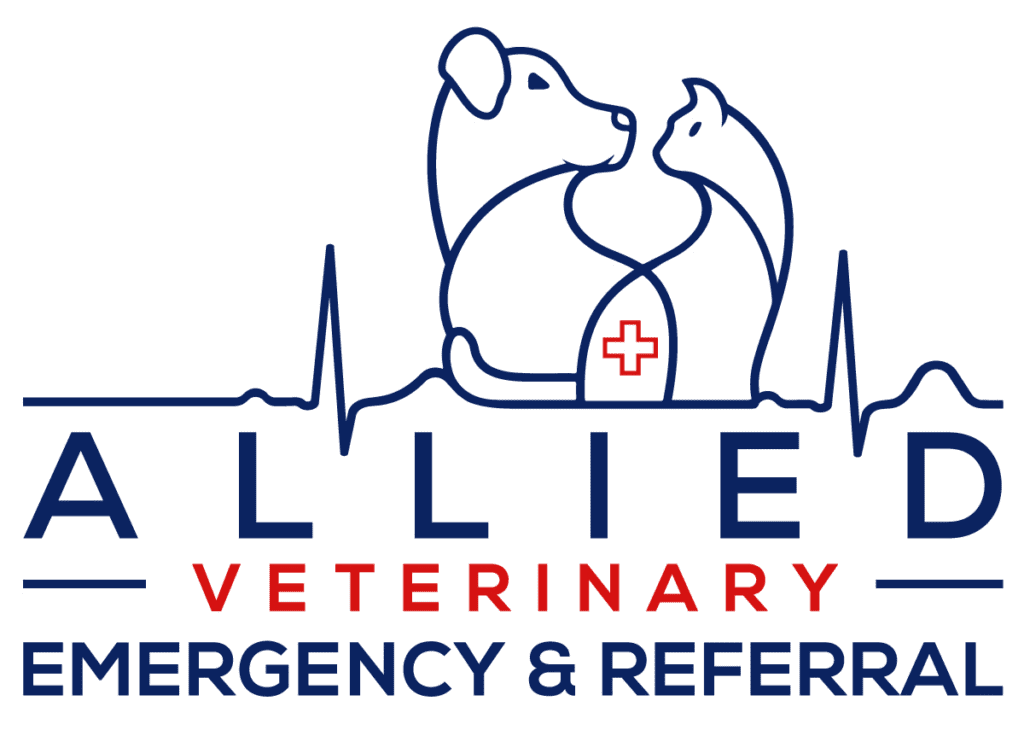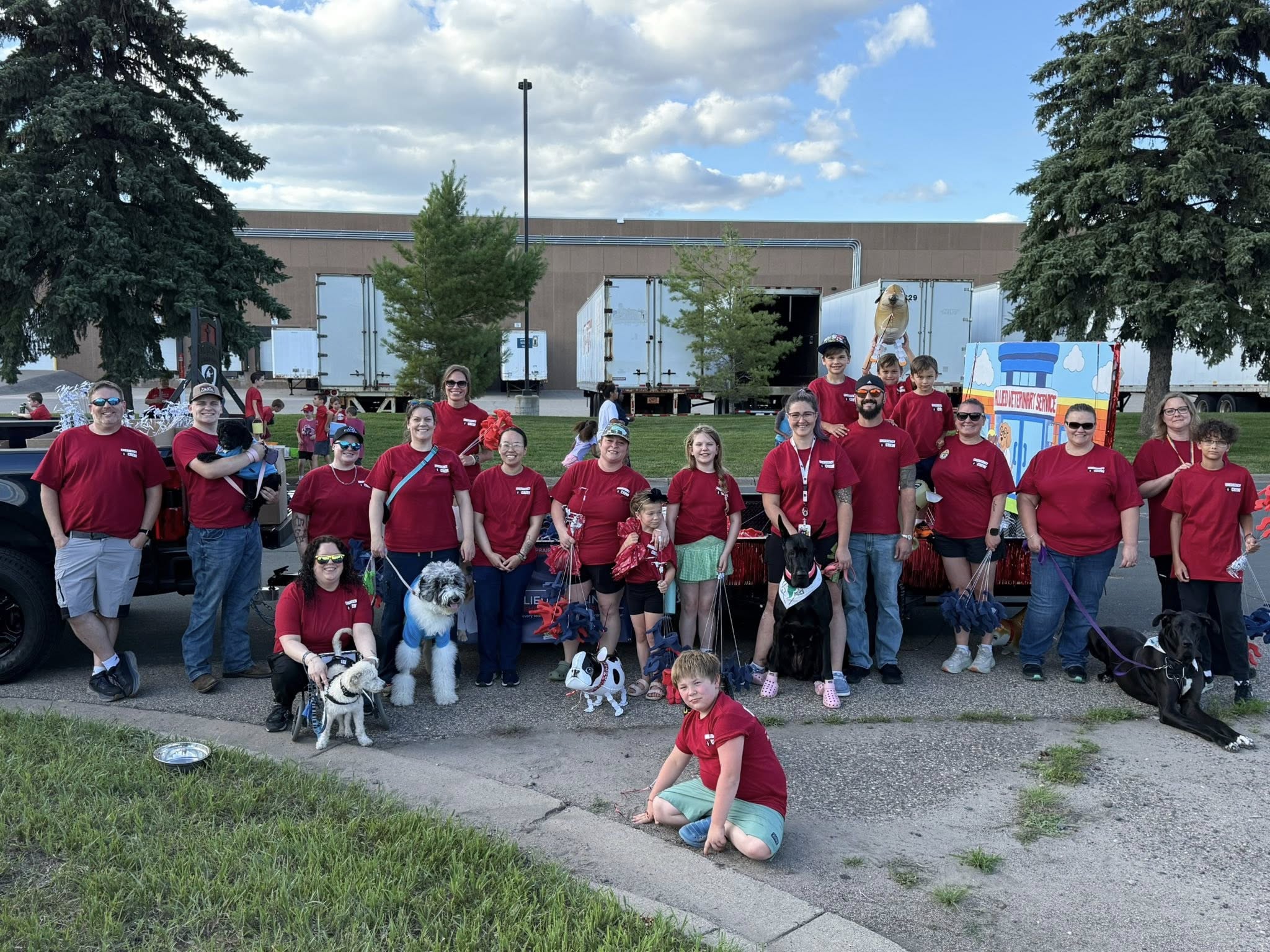New Strength Added to Our Emergency Team

We are thrilled to welcome Dr. Leah Richter to our Brooklyn Park hospital!
Dr. Richter recently completed her residency in Emergency and Critical Care at the University of Minnesota and is on the path to becoming a Diplomate of the American College of Veterinary Emergency and Critical Care.
Her advanced training strengthens our ability to manage the most complex and unstable cases. In addition to caring for our most critical patients, Dr. Richter will collaborate with referring veterinarians, oversee hospitalized patients, and support continuing education for our partners in the veterinary community.
With Dr. Richter’s expertise, Allied is proud to offer an even higher level of 24/7 emergency and critical care for pets and the people who love them.
Thanks to YOU

Our community is amazing. Your generosity raised $21,395.50 for Gilbert’s Legacy.
All Five of our Emergency Hospitals Welcome Walk-Ins

All 5 of our emergency hospitals welcome walk-ins. But, if your pet needs urgent care, you have the option to schedule an appointment at our Brooklyn Park hospital.
This location is home to multiple departments, including a dedicated urgent care team for pets who can be treated on an outpatient basis. That means easier access, shorter wait times, and prompt, compassionate care.
Please note: pets with life-threatening emergencies will always be prioritized.
Have questions or need to book? Call us at (763) 463-9800 —we’re here to help.
Specialist consultations are available in Brooklyn Park (Surgery, Oncology, Diagnostic Imaging, Cardiology) and Eden Prairie (Surgery).
Brooklyn Park, Minneapolis, Eden Prairie, and Eau Claire locations are all open 24/7.
Rochester is open nights, weekends, and holidays.
Having Fun While Supporting our Community

Did You Know? Rabies Is an Issue in Minnesota

Yes, rabies is an issue in Minnesota, with skunks and bats being the primary carriers of the virus. While rabies cases in domestic animals are relatively rare, they can occur after contact with infected wildlife. There has been a recent increase in rabies cases in Minnesota, particularly among skunks and cattle.
Here’s a more detailed breakdown:
- Wild Animals:
Skunks and bats are the primary carriers of rabies in Minnesota.
- Domestic Animals:
Domestic animals like dogs, cats, and livestock can contract rabies from infected wildlife, particularly skunks.
- Human Cases:
Human cases of rabies are rare in Minnesota, but they can occur through contact with infected animals.
- Recent Increase:
There has been a noticeable increase in rabies cases, especially among skunks and cattle, in certain regions of Minnesota.
- Prevention:
Vaccinating pets, avoiding contact with wild animals, and taking precautions to prevent bat and skunk encounters are important preventative measures.
- What to do if exposed:
If you suspect you or your pet has been exposed to rabies, contact the Minnesota Department of Health or the Minnesota Board of Animal Health, respectively.
Ask a Vet: What are the most common orthopedic injuries in dogs? - Part 2

Note: Cat friends – don’t worry – we’re going to do a series on common cat emergencies next – stay tuned!
Each month we share information on the most common orthopedic injuries in dogs so you are prepared with the knowledge you need to get them the expert care these injuries require.
Last month we covered Cranial Cruciate Ligament Rupture and recently added a page on our website all about Tibial Plateau Leveling Osteotomy (TPLO), a surgical treatment for this injury.
This month we’re focusing on Luxating Patella.
Limping or “Skipping” Steps? It Might Be a Luxating Patella
Understanding Patellar Luxation in Dogs
If your dog has been limping, “hopping” on one leg, or seems stiff when getting up, they could be dealing with a common orthopedic condition called luxating patella—also known as a dislocating kneecap.
What Is Luxating Patella?
This condition occurs when the kneecap (patella) moves out of its normal position in the groove of the thigh bone (femur). It can happen in one or both legs and ranges in severity from mild to debilitating.
Common Causes
- Developmental or congenital: Most often, it’s due to abnormal bone development or inherited traits—especially in small dog breeds like Pomeranians, Yorkies, and Chihuahuas.
- Trauma: Sometimes, injury to the knee can cause the patella to luxate.
Signs & Symptoms to Watch For
- Skipping or hopping gait: Your dog may suddenly lift a hind leg mid-walk, take a few steps on three legs, then return to normal movement.
- Abnormal leg position: Look for bow-legged stance or outward-turning knees when your dog sits or stands.
- Clicking or popping sounds: You might hear a click when the kneecap slips out of place.
- Pain or stiffness: Affected dogs may show discomfort or have difficulty moving the leg normally.
How Serious Is It?
Luxating patella is graded on a scale from I to IV:
- Grade I: The kneecap moves out of place but returns on its own—often with no signs of pain.
- Grade II–III: The kneecap may dislocate more frequently and might need manual correction or start causing pain.
- Grade IV: The patella is permanently out of place, often causing limping and limited mobility.
Treatment Options
Not every dog needs surgery, but the earlier we catch it, the better the outcome.
- Conservative treatment (for milder cases):
- Weight management
- Joint supplements
- Pain medications
- Physical therapy
- Surgical correction (for more advanced cases):
- Surgery can realign the kneecap and improve long-term comfort and mobility.
- Outcomes are typically excellent, especially in younger pets or when both knees are addressed if affected.
Why Early Evaluation Matters
If left untreated, luxating patella can lead to arthritis, chronic pain, and further instability in the joint. That’s why it’s important to talk with your primary care veterinarian or consult with an orthopedic specialist if you suspect anything unusual.
At Allied Veterinary Emergency & Referral, we’re here to help—whether you’ve just noticed your dog limping or you’ve been managing a known case that may now need surgical evaluation.
Schedule an Orthopedic Consultation
Let’s keep your pet moving pain-free! Schedule an Orthopedic Consultation at (763) 463-9800.










